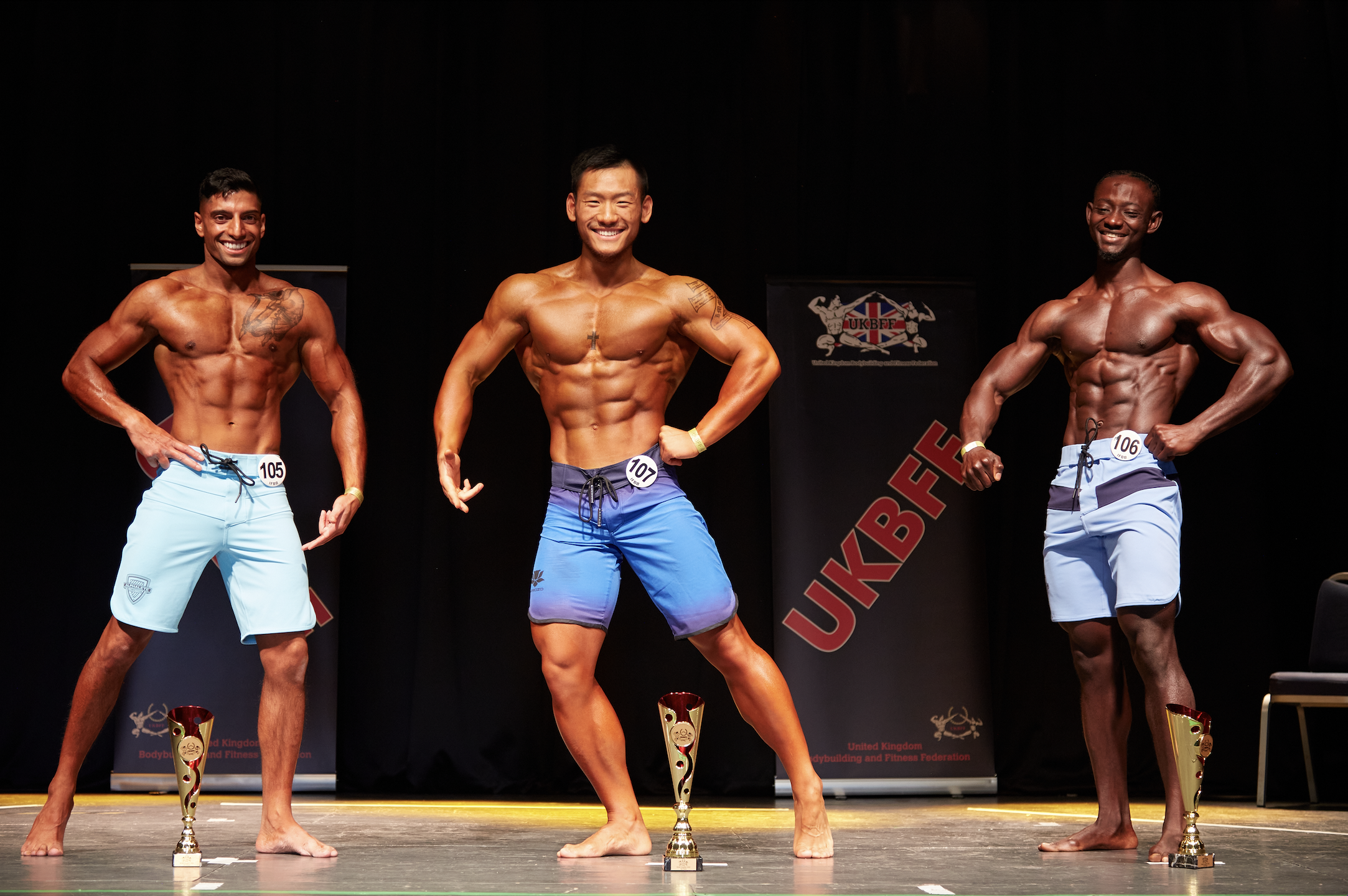Frustrated over your progress?

This article is for you if you’re frustrated over your progress despite training your guts out at the gym week in, week out. The sad truth is that a sizeable proportion of bodybuilders are not growing anywhere near as quickly as they could simply because they are overtraining. All those hours down at the gym pumping iron yet little or nothing to show for it. No wonder they give up and move on to something a little more rewarding.
If this sounds like you then don’t despair – with some care you will be able to start packing on some serious beef! I’ll go through a system that will help you to avoid overtraining and set you on the right path.
Let’s look at what overtraining actually is and why it can occur. Your body has a finite capacity for recuperation following exercise – your recuperative ability. Your actual recuperative powers depending on many factors, chief of which are your cardiovascular fitness, getting rest and sleep, hydration levels (dehydration wrecks your recuperative abilities) and nutrition. If any one of these factors is lacking then your ability to recover from your workouts will be seriously affected.
Recovery is a difficult subject to quantify but if you’re recuperative ability does not meet the recuperation needed between workouts then you fall into the nasty clutches of the overtraining demon. Let’s say you train your triceps in a workout on Wednesdays and you train your chest on Saturdays. As many chest exercises are pressing style ones then you be training your triceps as a byproduct of training chest.
If you still haven’t recovered from triceps workout by Saturday then you’ll put your triceps even further back in their recuperation by training them again whilst you train chest. Your poor triceps will then need to recover fully by the following Wednesday and your next triceps workout. This is very serious – if your triceps never fully recover from each workout then they will never grow (indeed, you run risk of them actually shrinking!). Your muscles only grow once they have recovered fully.
You might be able see what a balancing act bodybuilding is. Train too hard or too often and you risk over training – yet the flip side is that if you don’t train hard enough or often enough and you won’t grow or may even shrink. It can be quite a difficult tight-rope to walk if you aren’t aware of how precarious the precious muscle building area between over and under training is.
How to tell if you are overtraining
Obviously the most telling sign is if you aren’t growing or getting much stronger, or are even getting weaker. The difficultly with just using this test is that you may actually just not be training hard enough or regularly enough. I’ll let you be the judge of that, but if you’re training five times a week for an hour or more at a time then you may well be overtraining.
Other physical signs may present themselves too. You might feel more tired than normal, or have less enthusiasm for training and life in general and you might be a little more short tempered or irritable than normal too. These are all signs of your body struggling with stress. A lack of appetite is also a tell-tale sign of overtraining.
Unfortunately you might not be exhibiting any signs other than just a lack of progress as you could be borderline – you might be recovering just in time to be back to full strength for each workout but not giving yourself any time to actually grow!
Escape from overtraining hell
Okay, so by now you’re pretty sure you’re overtraining. So what to do about it? Well, my first recommendation is to take a week or two off from training, especially if you haven’t had any time off for more than two months (most bodybuilders don’t even realize that they should have weight-training holidays in order to allow their poor old bodies chance to recover from the incredible demands bodybuilding puts on them). This will allow you chance to fully recover and climb out of the pit you’re in. It will put you in a ready position to begin training again, though this time without overtraining.
Once you start training again, either reduce your works in number by half or reduce the length of each workout by half. I know what you’re thinking, reduce your workouts by half? Am I crazy?! I assure you I’m not! Not yet any way. The whole idea is to start at a level where you definitely aren’t overtraining. Then you will gradually (over a period of weeks and months) increase your workout duration / intensity / frequency until you reach the optimum level. Exactly when this is you’ll have to determine for yourself, but it will be difficult to spot. Your best bet is to keep a journal and monitor your bodyweight, body fat percentage and lifts to determine how quickly you are gaining muscle and strength. Vary your training duration / intensity / frequency slightly and then monitor again. If you stop gaining as quickly then reduce the amount of training back and try a different tack.
You must bear in mind just how important rest, sleep, water and nutrition are. Getting lots of rest, plenty of sleep (you shouldn’t need an alarm clock to wake you up in the morning!), avoiding dehydration and eating well are key to your bodybuilding endeavours. In fact, by lacking in any of these areas you could quite easily end up overtraining even if you’re not training too much. Also, if you aren’t consistent with your diet, rest, sleep and water intake you will find it very difficult if not impossible to work out how hard / much / often you need to train for optimum growth as your recuperative ability will fluctuate along with your diet etc.
Consistency in all aspects of your diet, training and rest is critical if you are going to achieve your bodybuilding goals in the long term. I can’t emphasize this enough. Bodybuilding is not a sprint. It’s a marathon.
Tips on avoiding overtraining
1. Use the ‘window of opportunity’ after a workout to get in quality nutrition. Your body absorbs, processes and uptakes food with maximum efficiency directly after a workout and it’s very important that you get some carbs and protein in at this time. Research has shown that carbohydrate update and glycogen formation is at it’s peak immediately after a workout. If carbs aren’t in supply at this period it can take up to twice as long to fully replenish your muscles as it would if you’d supplied carbs.
2. Don’t use too many advanced training techniques. Some real hardcore nutter psycho bodybuilders will use advanced training methods on every set they do. Endless forced reps and negatives. Drop sets galore and double and triple sets everywhere. This is WAY too intense for their poor body’s to cope with and only steroid users can even cope with this sort of demand, let alone grow from it. Use these techniques as extras – use them judiciously. If you’re training on your own and don’t have a spotter you could do drop sets in combination with lower weights to ensure safety. A few forced reps on your last set of the workout to finish you off good and proper is an excellent method.
If you insist on using loads of advanced techniques please please please do way fewer sets than normal. Even Mike Mentzer and Dorian Yates could only grow if they did far fewer sets than other less intense bodybuilders.
3. Keep your workouts under an hour. Research has shown that after an hour workout effectiveness decreases rapidly – long workouts are counter-productive to your growth. Get in the gym, train hard and get out. Job done.
Conclusion
Tens of thousands of bodybuilders are in an over trained state as I type this. These people are all incredibly hard workers who aren’t getting the kind of results their efforts should reward them with. Please don’t be one of these people. Take a good hard look at your training, diet, rest, sleep and water intake and see if you could be overtraining (or under eating / resting / drinking / sleeping!)

Guntur is a bodybuilding and powerlifting enthusiast. He is also the main author of this blog https://learn-bodybuilding.com/
Guntur also works as a Personal Trainer in his town.
In his free time, he likes to learn new languages and reading.
You can contact him from this website’s Contact Page.